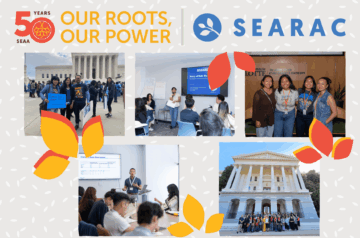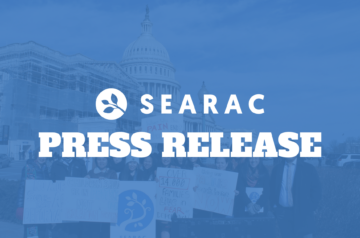In 2016, Gov. Jerry Brown signed AB 2016 (Alejo) into law, which requires the California Instructional Quality Commission to develop an ethnic studies model curriculum for the State Board of Education to adopt. Simultaneously, SEARAC and the AAPI Coalition Helping Achieve Racial and Gender Equity (CHARGE) conducted an AAPI youth assessment, Can You See Me?, for which only 39% of AAPI youth and young adult respondents in CA said they have had classes that taught them about their racial/ethnic identity. In our focus groups with AAPI youth and young adults, participants discussed how stereotypes about their racial and ethnic identities were pervasive in the verbal bullying and harassment they experienced at school. Making ethnic studies courses available to students can be a tool to combat high rates of racially motivated bullying by allowing students to learn about each other’s histories and increasing AAPI visibility and cultural awareness.
The draft ethnic studies model curriculum is now available for public review and in need of your feedback. In addition, the current Assembly Bill (AB) 331 (Medina) would require ethnic studies to be included as a high school graduation requirement for all public schools, including public charters. Help ensure that the ethnic studies model curriculum is reflective of diverse Asian American and Pacific Islander experiences by submitting a public comment to the CA Department of Education.
Can we count on you to help California’s students? The deadline to submit a public comment is August 15.
For more information, please contact Tiffany Tran, SEARAC CA policy intern, at tiffany@searac.org.
Take action: Review the ethnic studies model curriculum and submit a public comment.
The most effective comments are unique and include a specific and actionable request.
1) Review the ethnic studies model curriculum here.
- Scroll to the bottom of the site to see multiple links. The ethnic studies model curriculum is Chapter 2: Sample Course Models.
- For your reference, the Asian American section goes from pages 149 – 197, and the Pacific Islander section goes from pages 288 – 300 (end of the document).
2) Download the Public Input Template (also on the website), fill it out using Microsoft Office, and attach it via email as a Microsoft Word file to ethnicstudies@cde.ca.gov.
Sample language for public comment:
Chapter of model curriculum: Chapter 2
Your name and affiliation: SEARAC
Comment (include page and line numbers where applicable):
Line items 3742-3745:
Asking and identifying students in the classroom can be problematic and tokenizes them.
Recommendation:
To remove and replace the current question to “What do we know about Hmong Americans?”



